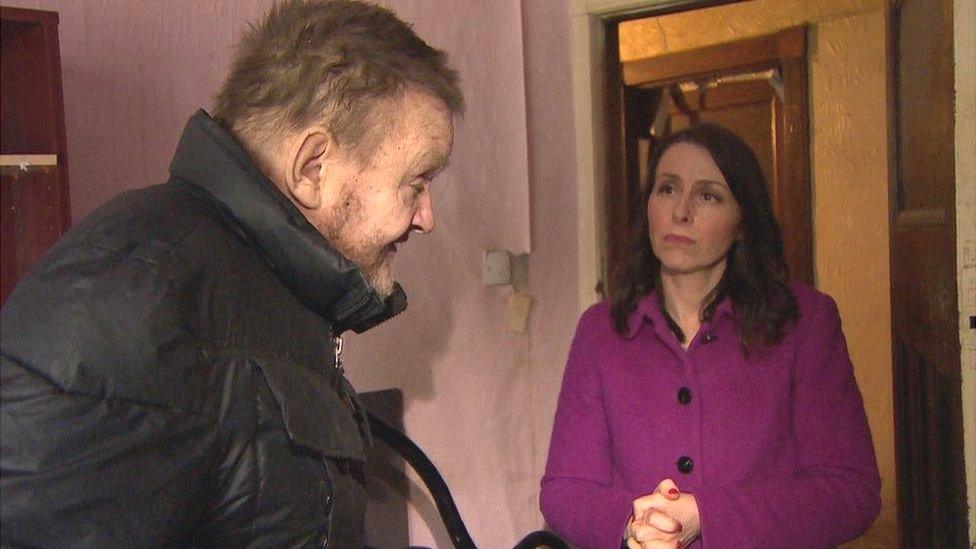Police officer tells how 'Margaret Fleming case stuck with me'
- Published
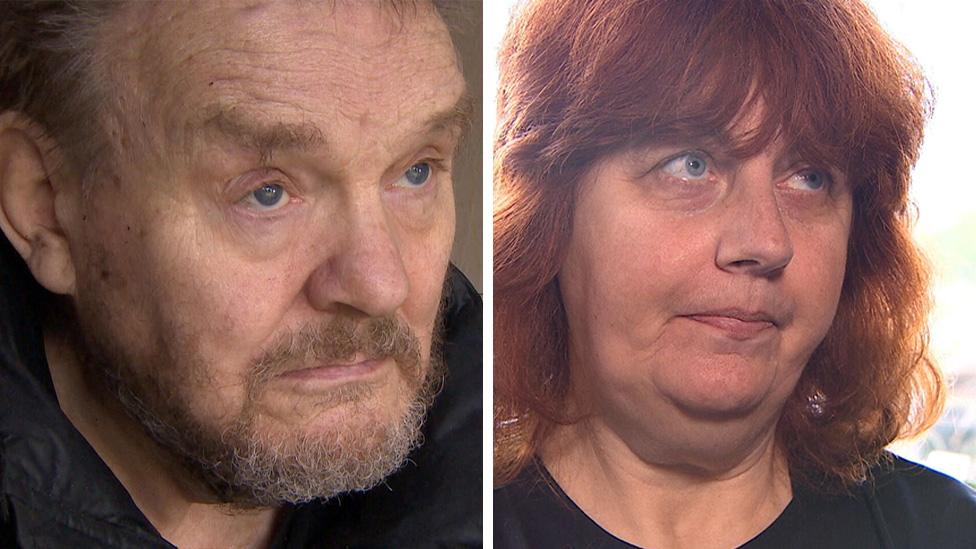
Cairney and Jones spent years pretending that Ms Fleming was still alive
The police officer who first knocked on Avril Jones and Edward Cairney's door looking for missing woman Margaret Fleming has told how he knew "something wasn't right".
Sgt Chris McKay returned to the house in Inverkip during filming for a BBC Scotland documentary on the murder case.
He described the behaviour of those who were supposed to be caring for the vulnerable woman as "very strange".
Jones and Cairney were last year convicted of murdering Margaret whose disappearance went unnoticed for 17 years.
The two-part documentary, Murder Trial: The Disappearance of Margaret Fleming, follows their trial at the High Court in Glasgow.
Filmed by BAFTA Scotland award-winning director Matt Pinder, it features police officers, lawyers, witnesses and school friends of the victim.
The case
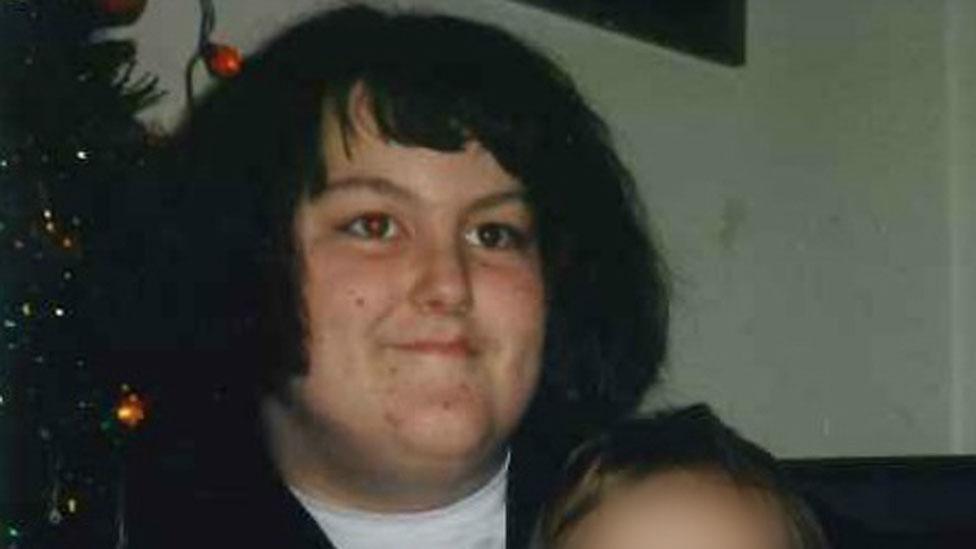
Margaret Fleming had moderate learning difficulties
Margaret Fleming was a vulnerable teenager with learning difficulties.
Entrusted by her dying father into the care of his friends Eddie Cairney and Avril Jones, it was believed she was living in a remote coastal property in the village of Inverkip, on the west coast of Scotland.
But an application for a Personal Independence Payment changed everything.
Social workers could not get in contact with the applicant, Margaret. Police were called and it was discovered that Margaret, who would have been 35, had seemingly vanished.
The police officer
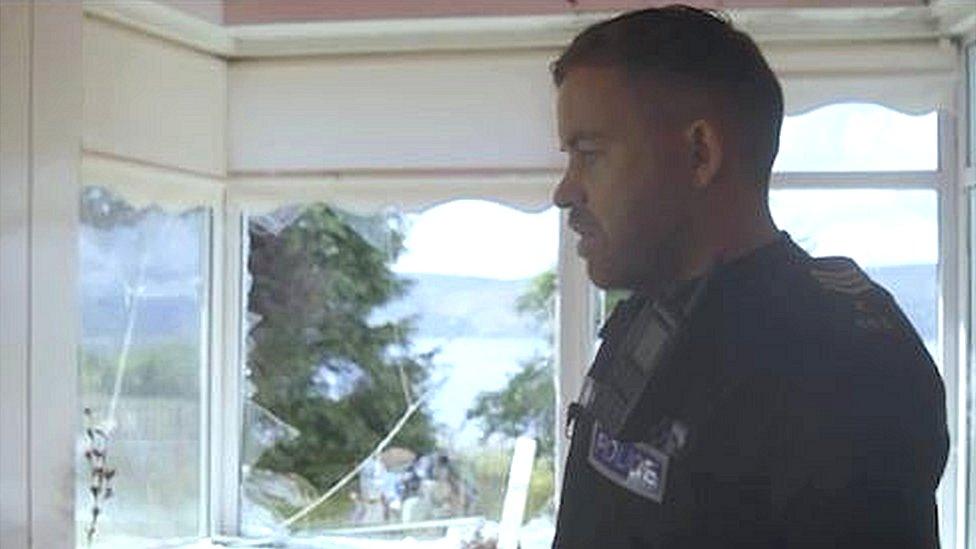
Sgt Chris McKay revisited the house where Margaret shared with her two carers
Sgt Chris McKay came on shift on 28 October 2016 and took a call from the concerned social worker. It was then decided he would visit the house.
When he arrived Eddie Cairney claimed Margaret had just left by the back door.
Sgt McKay said: "The one thing he said that stuck with me was that if we went away Margaret Fleming would come back, because authority figures had it drilled into her that she would be taken into care.
"From the outset it was very strange."
Re-visiting the derelict house, he recalled the conversation he had there.
Sgt Chris McKay returns to the house where he first met Edward Cairney and Avril Jones.
"I still remember standing here on that night in question. Avril sitting here, Eddie sitting there. Asking him questions and he would control the conversation.
"He wouldn't allow Avril to speak. You could tell she was extremely nervous, just very fidgety with her hands and looked a bag of nerves.
"That's when we were thinking wait a minute, something's not right here."
The reporter
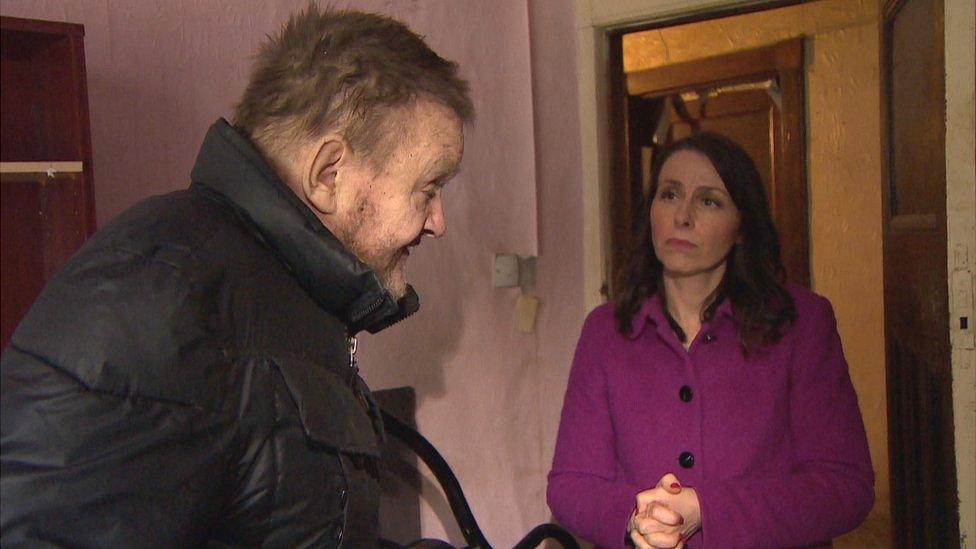
Suzanne Allan's interview with Eddie Cairney led to her becoming a witness in court
BBC Scotland's Suzanne Allan was invited into "Seacroft", Cairney and Jones' home during the investigation into Margaret's disappearance.
The extraordinary interview she conducted was later used as evidence, with the reporter herself a witness in court.
She said the story was unlike any other she had worked on.
"It still shocks me when I see the condition of that house, to this day," she recalls. "It was just bizarre from the word go."

Police described the house as "uninhabitable"
"I came back from that to the newsroom and everyone was asking what's the story - it was so unusual."
In the interview, conducted in October 2017, Cairney claimed Margaret was in Poland working as a gangmaster. Avril Jones looked blank when asked if she had a message for Margaret.
The friend
The documentary also hears from Alison Nugent, a friend of Avril Jones who was called to give evidence for the prosecution during the trial.
She said: "I looked over at Avril and Avril was staring straight ahead. I was there as a friend and it was almost as if that had been erased. I was now the enemy."
"My head doesn't want to say that there was a murder involved. Maybe something happened and they just had to cover it up. That would be the lesser of two evils.
"But they are covering up something huge."
The prosecutor
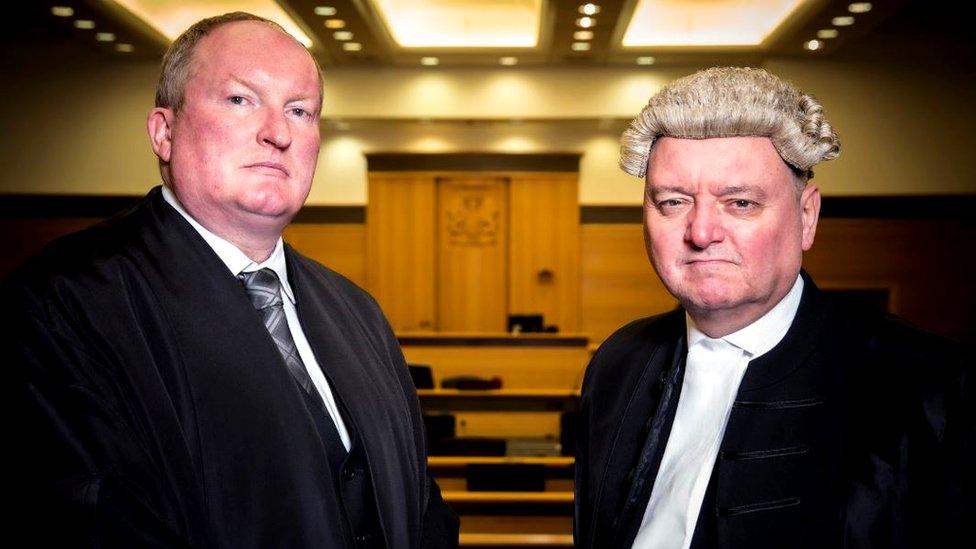
Iain McSporran QC (L) prosecuted the case and Thomas Ross QC represented Edward Cairney
"No one said it would be easy - but no one warned me it would be this difficult."
In April 2019, Iain McSporran QC prosecuted one of the most difficult cases of his career.
He tells the documentary: "There is no smoking gun in this case, we don't have an eyewitness to Margaret being killed, we don't have the discovery of her body.
"It would be idle to speculate as to whether a weapon was used. I don't and I am not sure that anyone does have a theory as to the circumstances that Margaret met her death.
"We say that all the evidence points to that having been a criminal act motivated by greed."
He says: "My first impressions were of something bad having happened to Margaret but something which would be very difficult to prove."
Murder Trial: The Disappearance Of Margaret Fleming is on the BBC Scotland channel on Tuesday 7 January at 22:00 and on BBC Two on Wednesday 8 January at 21:00.
- Published17 July 2019
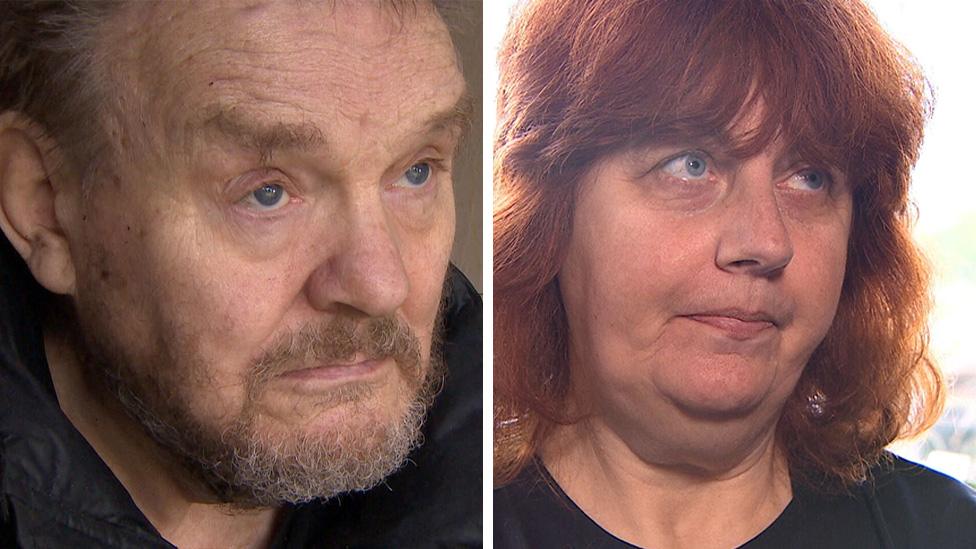
- Published1 November 2019

- Published14 June 2019
